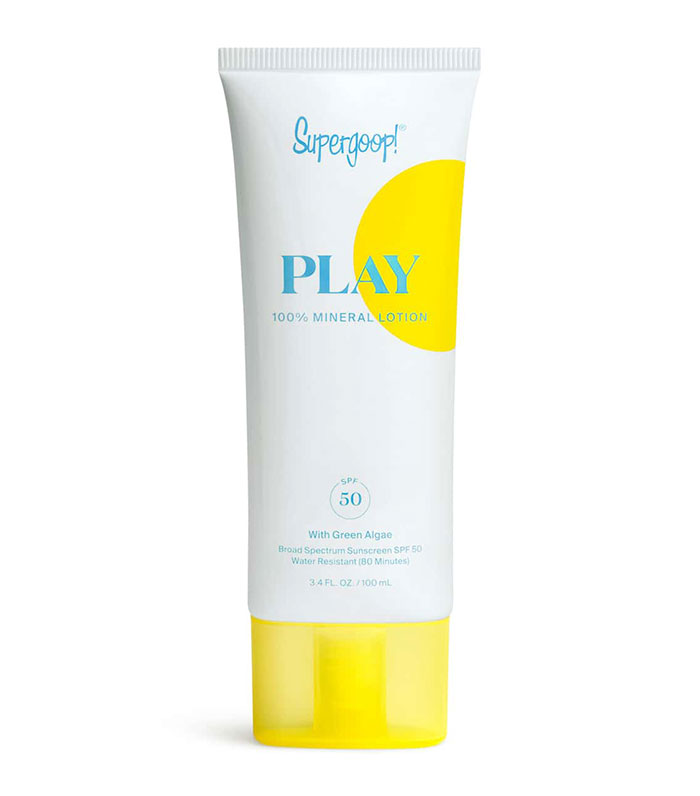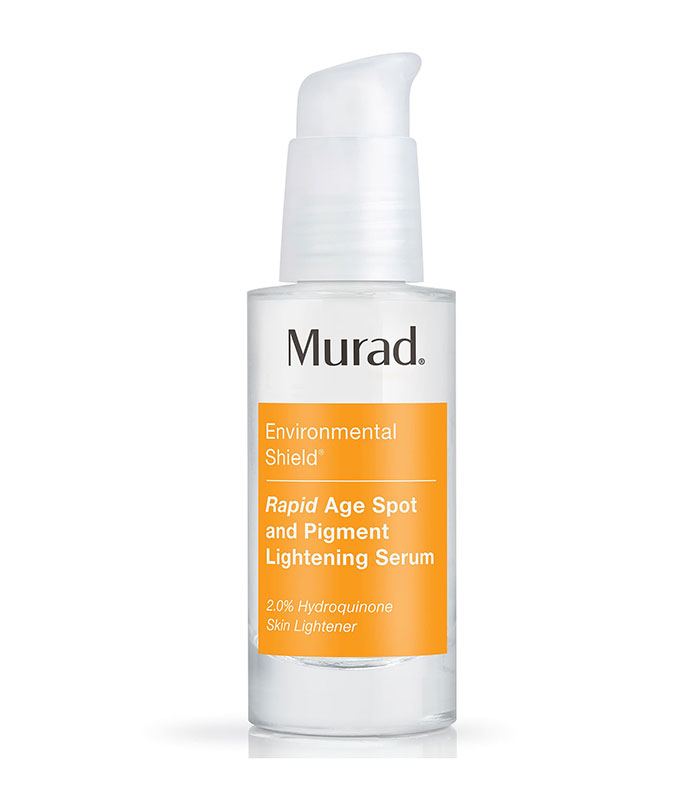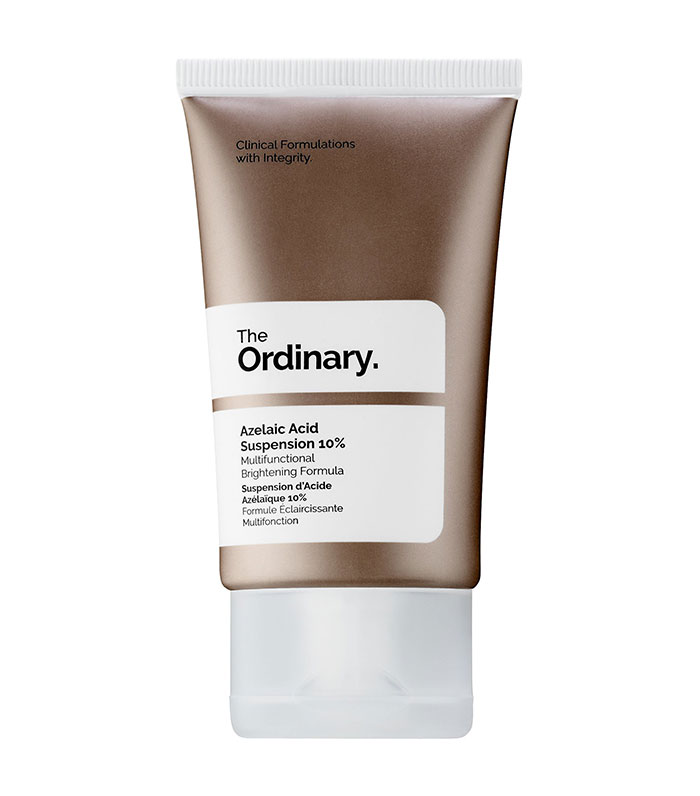Does Birth Control Cause Dark Spots? Here's What You Should Know
If you've looked in the mirror lately and noticed some dark spots, you might be wondering what they are and what's causing them. It might mean a number of things health-wise, but one reason for them could be your hormonal birth control. In those cases, the dark spots may be classified as melasma. Yes, the same birth control that can prevent you from getting pregnant and sometimes help with acne and PMS symptoms (cramps and heavy bleeding, for example) could also be the cause of annoying blemishes.
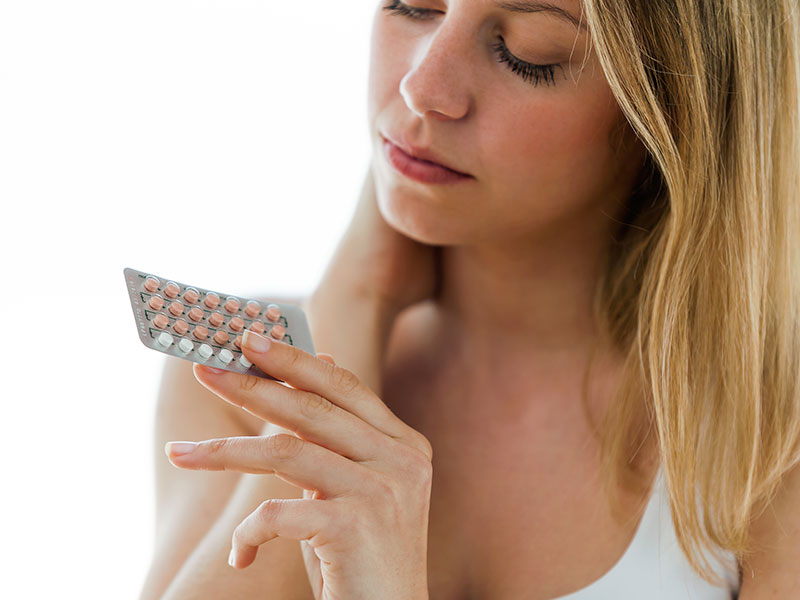
"Dark spots on the skin can include sunspots (age-related skin damage associated with sun exposure) or melasma (related to sun or hormone exposure)," says Luu Ireland, MD, MPH, family planning specialist, fellow with the American College of Obstetricians and Gynecologists, and assistant professor at the University of Massachusetts Medical School. "The exact mechanism behind melasma is not well understood. We know that it affects women more than men. We know that women with darker skin, such as those of Latina, black, or Asian descent, are more likely to be affected. We know that exposure to hormones or sun stimulates melanocytes (melanin-producing skills cells) to produce more pigment. Family history is also a risk factor for the development of melasma."
What Is Melasma?
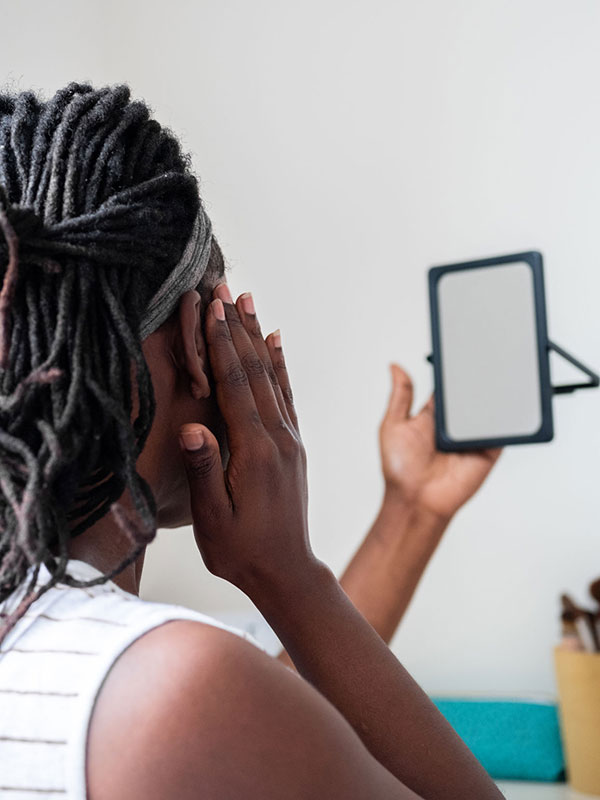
So what exactly is melasma and should you be worried? According to the American Academy of Dermatology, there are brown or gray-brown patches on the face that commonly appear on the cheeks, forehead, bridge of the nose, above the upper lip, and chin. They don't cause any symptoms, but you should have your doctor check it out to see if it really is melasma or something else.
For many, melasma may be triggered by changing hormone levels. "Melasma can start during pregnancy due to the high levels of estrogen and progesterone, the two hormones that stimulate melanocytes to produce more melanin," Ireland says. "While levels of estrogen and progesterone are much lower in women on hormonal birth control (compared to pregnant women), women at particularly high risk can develop melasma while on birth control."
In some cases, it can fade on its own (after you give birth or if you switch or stop your birth control pills).
What Types of Birth Control Cause Melasma?
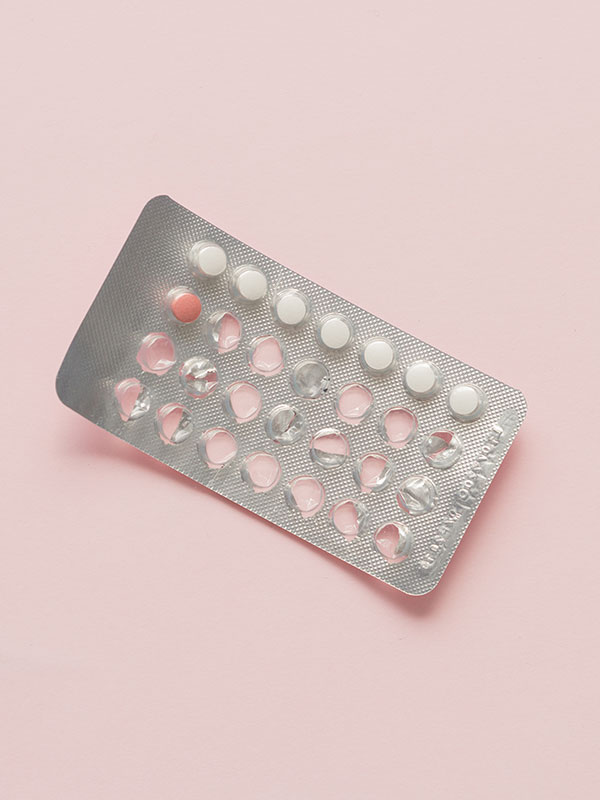
It's important to note that not everyone who takes birth control will experience melasma, and the pill isn't the only form of contraception that can cause it. Additionally, some women—women with darker complexions and with a family history of melasma—are more prone to it.
"Most women can use the range of hormonal birth control methods and have no issues with melasma. In fact, many women use birth control to decrease acne and improve the appearance of their skin," Ireland says. "However, in women at high risk for melasma, any hormonal birth control can bring on the dark skin spots of melasma. Contraceptives containing both estrogen and progestins (such as the pill, the patch, or the contraceptive ring) are most likely to cause melasma. Some women will also develop skin changes to progestin-only contraceptives such as Depo-Provera (the birth control shot), Nexplanon the contraceptive implant), and/or the levonorgestrel intrauterine device (IUD). For women particularly sensitive to all hormones, the Paragard IUD (uses copper instead of hormones) is a great option."
What Should I Do If I Have Melasma?
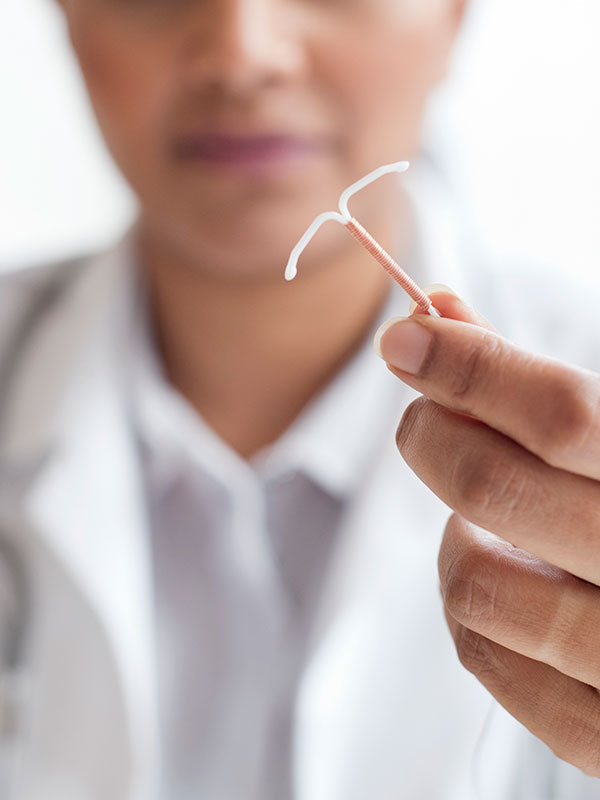
First things first, don't stop your contraceptive method if that's already your lifestyle choice. "Women can consider switching to a non-hormonal birth control method, like the Paragard IUD. Women should not forgo birth control altogether as pregnancy will cause melasma that is much more noticeable and stubborn than birth control will," Ireland says.

Second, protect yourself from the sun. Ireland says sun exposure plays just as big or bigger a role in hyperpigmentation than hormones. "Avoid sun exposure, wear a large-brimmed hat, and use a mineral-based sunscreen at all times. Mineral-based sunscreens use zinc or titanium oxide and are better at protecting the skin from pigment changes related to UV light," she recommends.
What Are Treatments for Melasma?
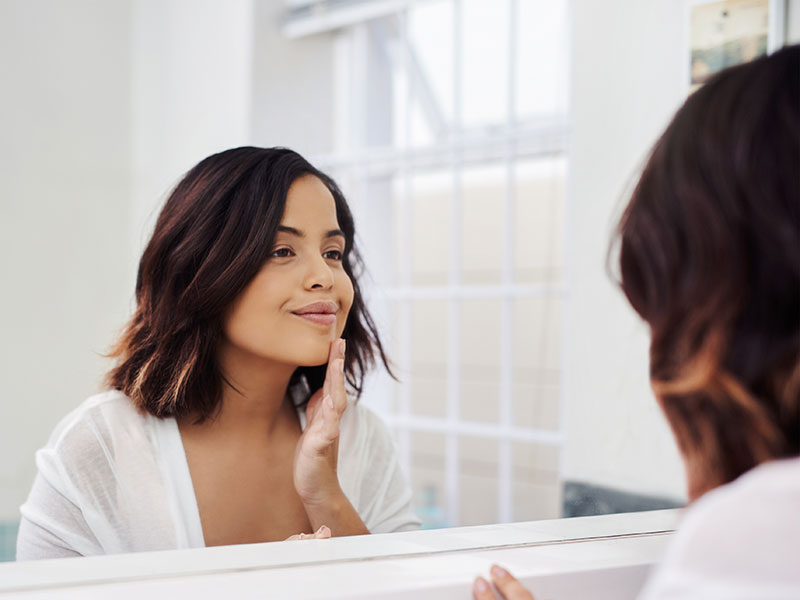
A change in diet won't help, but Ireland says, "Vitamin C serums can be helpful as can topical retinoids. Laser treatments can be helpful for some women and worsen pigmentation in others. See your dermatologist to find out what is right for you."
The American Academy of Dermatology states that some dermatologists may prescribe hydroquinone (it can help lighten the skin, and there are some formulas that you can get without a prescription); tretinoin and corticosteroids (another medication that enhances skin lightening); and other topical medications (like azelaic acid or kojic acid).
Lastly, if you are experiencing what you think might be melasma, see your general practitioner or a dermatologist who can provide more information for your specific condition.
Next up, 12 sneaky signs that you could have a thyroid problem.
This article is provided for informational purposes only and is not intended to be used in the place of advice of your physician or other medical professionals. You should always consult with your doctor or healthcare provider first with any health-related questions.
Sarah is lifestyle writer and editor with over 10 years of experience covering health and wellness, interior design, food, beauty, and tech. Born and raised in Los Angeles, she attended New York University and lived in New York for 12 years before returning to L.A. in 2019. In addition to her work atBest Knockoff Luxury Clothing , she held editor roles at Apartment Therapy, Real Simple, House Beautiful, Elle Decor, and The Bump (sister site of The Knot). She has a passion for health and wellness, but she especially loves writing about mental health. Her self-care routine consists of five things: a good workout, “me” time on the regular, an intriguing book/podcast/playlist to unwind after a long day, naps, and decorating her home.
